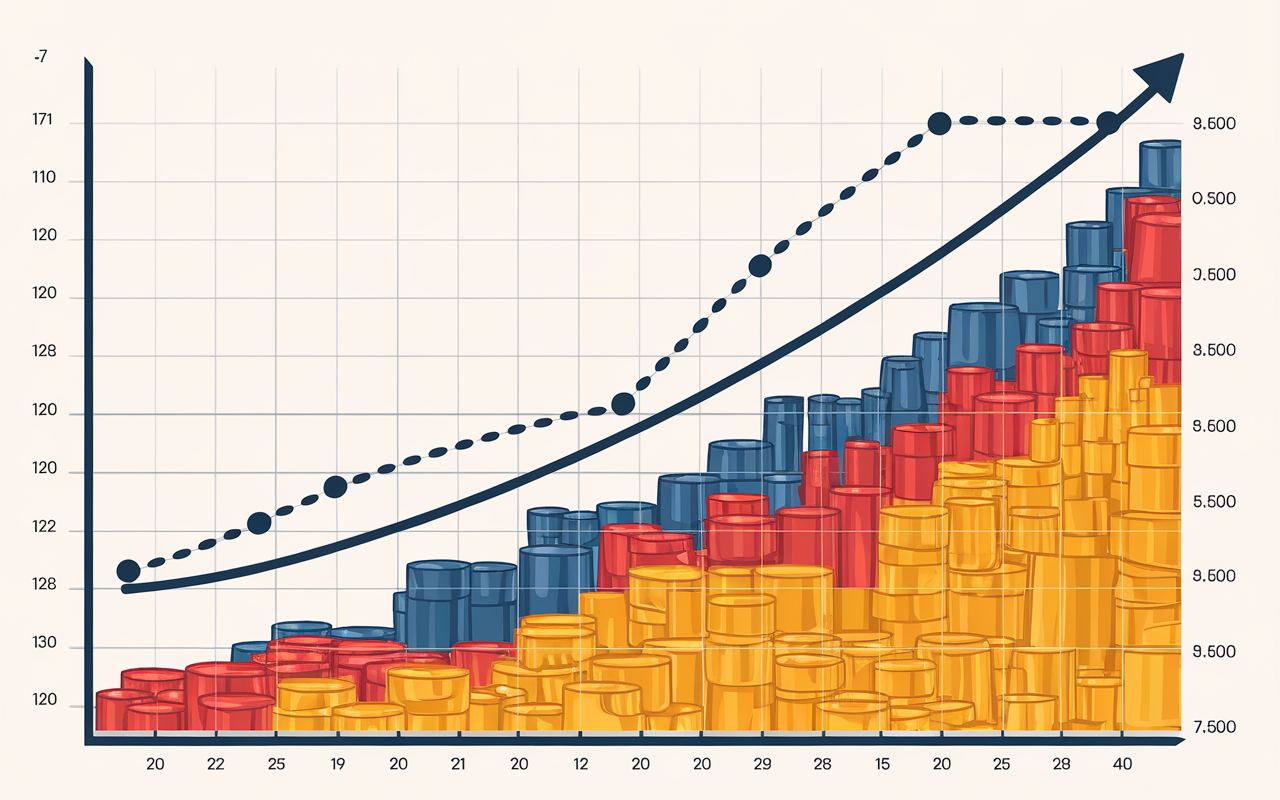Trump's Tariff Plan: The Economic Gamble of 'Big Numbers' 💰
In a bold move that has left experts scratching their heads, former President Donald Trump recently unveiled sweeping tariffs aimed at foreign imports. He boldly declared it a "Liberation Day" for the economy, but the consequences seem far from liberating. 🚨
According to experts, the haphazardly constructed tariff plan appears to be driven more by Trump's desire for "big numbers" rather than sound economic rationale. As he announced these steep taxes on imports, stock markets responded with alarm, causing a significant downturn. Given the chaotic backdrop of elections and market reactions, it's essential to dissect the implications of this tariff blitz.
The Chaotic Approach 🌀
A clear pattern emerges: Trump's administration often appears to operate on impulse rather than a coherent strategy. As reported, many advisors scrambled to build the tariff methodology just before its public announcement. The focus largely rested on presenting impressively large figures that Trump believed would compel foreign nations to play by his rules. One source notably remarked, "He wanted the numbers to be huge," demonstrating a dangerous penchant for spectacle over substance.
These 'big numbers' aren't generating the goodwill that Trump expected; they are generating confusion and fear among American businesses and the markets. Trump’s followers have been told to trust him, yet many are now questioning whether this strategy serves their interests.
Economic Backlash 🚨
The immediate aftermath? A market response that many describe as overwhelming. Stock indices like the Nasdaq and S&P 500 have taken some of the steepest hits observed in years. The concern? This tariff plan, instead of bringing a boomerang effect that benefits Americans, may lead to repercussions that ultimately make daily goods significantly more expensive. Economists warn that this could trigger a chain reaction, devastating small businesses and working Americans who are already facing economic challenges.
One economist captured the sentiment perfectly by stating, "The hallmark feature of the Trump economic agenda so far has been uncertainty, and uncertainty is poison for the economy."
A Reckless Weapon 🗡️
Tariffs, when applied judiciously, can serve specific economic goals, much like a scalpel in surgery. However, employing them carelessly as a blunt instrument creates risk rather than safety. Trade experts warn that this reckless method could lead to ruinous outcomes for American families.
Republicans are likewise growing uneasy with the rising tide of discontent. Polls indicate that Trump is losing favorability regarding his handling of the economy, with increased concern over controversial policies only further complicating the political landscape.
Conclusion: The Price of Big Numbers 💸
As Trump cavalierly brushes off the consequences of his enigmatic tariff plan, the future remains murky for Americans bracing for rising costs and economic turbulence. The question looms: how long can voters afford to give him the benefit of doubt while experiencing the tightening grip of his policies?
Only time will reveal the long-term impacts of Trump's tariff strategy, but it seems more essential now than ever for both lawmakers and the American public to weigh the risks and responses surrounding these transformative changes in trade.
Stay tuned, as the repercussions from Trump's "big numbers" adaption will likely unfold in unpredictable ways as we move through 2025.
What are your thoughts on this reckless gamble? Will "trusting the process" hold true for financial health? Let us know in the comments below!
[#TrumpTariffs #EconomicImpact]

More Stories
Exciting News: The Summer I Turned Pretty is Becoming a Movie
Reflecting on Robert Redford’s Legacy of Integrity and Artistry
Sara Rivers Appeals Dismissal of $60 Million Lawsuit Against Sean Combs: A Fight for Justice in the Entertainment Industry